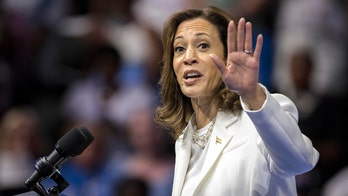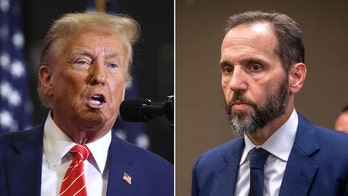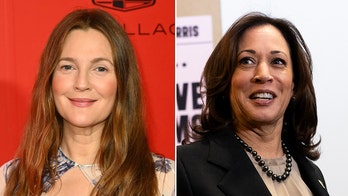Senator Rick Scott (R-FL) has joined the race to replace Mitch McConnell as Senate Republican leader, advocating for significant changes in the party's approach. Scott emphasizes the need to empower individual senators and promote conservative values. Other potential candidates, including Senators John Cornyn, John Thune, and Mike Lee, are also vying for the leadership role.
Senate Minority Leader Mitch McConnell's decision to step down has sparked a competitive race among Republican senators seeking to succeed him. Among the contenders is Senator Rick Scott (R-FL), who is advocating for a departure from the McConnell era.

McConnell's Successor Race: Rick Scott Touts 'Sea Change' for GOP Leadership
In a recent interview with Fox News' "The Ingraham Angle," Scott outlined his plans to turn the page on the McConnell era. He emphasized the need for a "sea change" in Republican leadership, prioritizing a decentralized approach that gives more power to individual senators.
Scott advocates for a system where senators have greater flexibility to offer amendments and shape legislation. He believes that limiting the ability of senators to participate in the legislative process has alienated voters and diminished public trust in institutions.

McConnell's Successor Race: Rick Scott Touts 'Sea Change' for GOP Leadership
Scott also emphasizes the importance of promoting conservative values in the Senate. He suggests that current procedures prioritize Democratic priorities and that Republican leadership should focus on establishing clear policy goals and strategies to advance conservative policies.
In addition to Scott, Senators John Cornyn (R-TX), John Thune (R-SD), and Mike Lee (R-UT) are among the potential candidates for Senate Republican leader. Cornyn and Thune are considered more moderate figures, while Lee is known for his conservative views and advocacy for Senate reforms.

McConnell's Successor Race: Rick Scott Touts 'Sea Change' for GOP Leadership
In a letter to Republican colleagues, Senator Lee outlined three key reforms he believes should guide the approach of Senate Republicans going forward. He calls for:
1. More time for debate and deliberation on legislation, including a structured process for considering appropriations bills and ensuring ample time for amendments.

McConnell's Successor Race: Rick Scott Touts 'Sea Change' for GOP Leadership
2. Strategic promotion of conservative values by establishing clear policy goals and developing specific strategies to achieve Republican victories on must-pass legislation.
3. Requiring the majority support of the Republican conference for the floor leader and whip to advocate for or against legislation, protecting Republican leadership from having to support legislation that advances Democratic priorities.
Lee also highlights the issue of "filling the amendment tree," a process that prevents senators from offering further amendments to legislation. He proposes a simple reform that would require three-fourths of the Republican conference to agree before the amendment tree can be filled, ensuring more senators have the opportunity to participate in the legislative process.
The race to succeed McConnell is shaping up to be a significant battle between candidates with different visions for the future of the Senate GOP. Scott's emphasis on empowering individual senators and promoting conservative values represents a potential departure from the McConnell era, while other candidates offer different perspectives on leadership and priorities.
The outcome of the race will have a profound impact on the direction of the Senate Republican Party and the political landscape in the United States. As the candidates continue to campaign and articulate their visions, the future of Senate GOP leadership remains uncertain.










